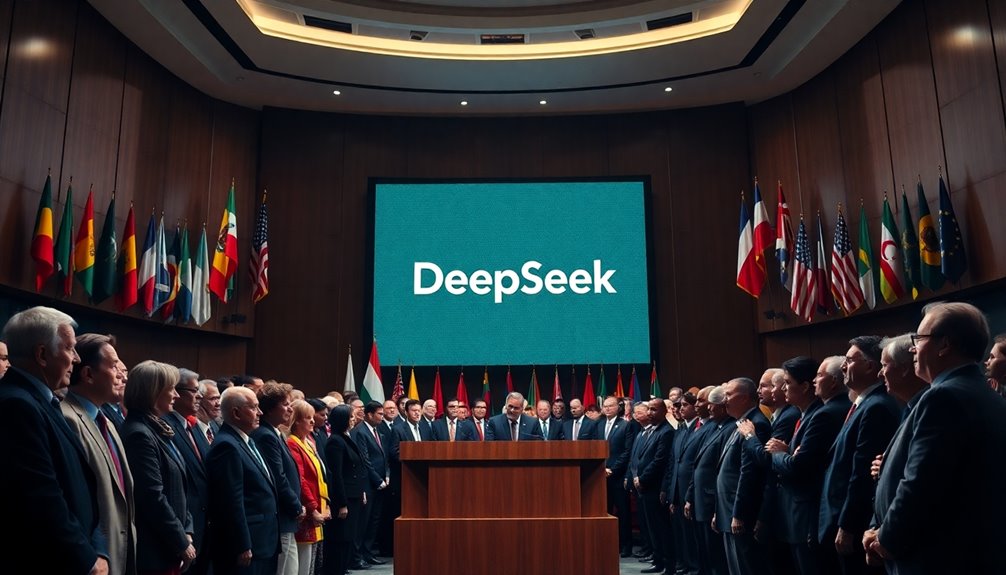Countries around the globe are taking a firm stand against DeepSeek, and it's not just a coincidence. With concerns about data security and national sovereignty rising, governments are stepping up to protect their citizens. The app's servers are located in China, raising red flags about potential government access to sensitive information. So, what does this mean for the future of tech governance and personal privacy? The implications are significant and far-reaching.

As concerns over data security and national sovereignty grow, countries around the world have united to ban DeepSeek, a controversial AI application linked to Chinese tech. Italy has taken decisive action, removing DeepSeek from app stores due to pressing data protection concerns. Similarly, Taiwan has restricted the app's use in public sector organizations and critical infrastructure, highlighting the urgency of safeguarding sensitive information.
Australia has also joined the fray, prohibiting government employees from accessing DeepSeek, citing significant national security risks. Even in the United States, Texas led the charge as the first state to ban DeepSeek, with federal agencies following suit in limiting its use.
The reasons behind these bans are stark and alarming. One major concern is data security; DeepSeek stores user data on servers situated in China, raising fears about potential government access to this sensitive information. Countries worldwide perceive DeepSeek as a potential threat to national security, with its capabilities for data espionage casting a long shadow.
Moreover, tests have revealed that DeepSeek collects excessive amounts of user data, far beyond what's necessary, which only amplifies privacy concerns. The app's tendency to filter sensitive topics while promoting Chinese government narratives has also raised serious censorship issues.
The global scrutiny on DeepSeek has prompted legislative action, particularly in the US, where proposed bills aim to restrict the use of Chinese AI technologies. Potential fines and penalties loom for any violations. Italy's ban underscores a broader European apprehension regarding compliance with stringent data protection laws.
Other nations, including South Korea and the Netherlands, have similarly restricted access to DeepSeek, reflecting a widespread backlash against Chinese tech companies.
The implications of these bans extend far beyond immediate security concerns. This growing movement against DeepSeek signals a major trend in international relations, emphasizing data security and sovereignty.
It's part of the strategic competition between the US and China in the rapidly evolving AI market. Data privacy has never been more critical, and these bans serve as a wake-up call for the importance of safeguarding personal information in an increasingly digital world.
The future of AI governance will undoubtedly be shaped by these developments, influencing how technologies like DeepSeek are regulated globally.









